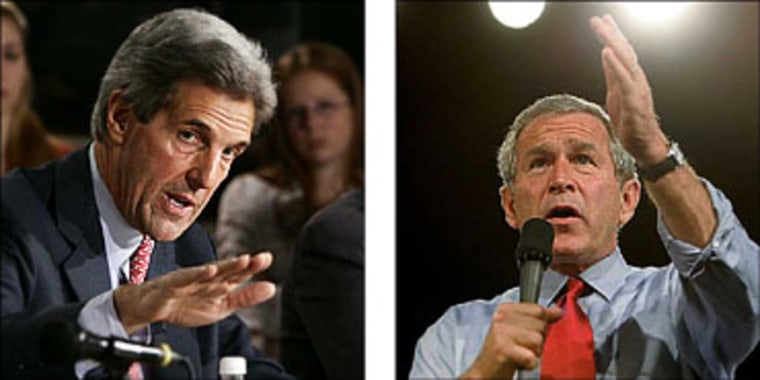In the run-up to U.S. elections, the debate over Iraq has been mired in the past — should President Bush have ordered the invasion? Was the intelligence flawed or misrepresented? Has the operation been bungled?
Regardless, a grim reality awaits the next commander in chief: The battlefield has no front, only what military experts call "centers of gravity." The enemy is hydra-headed, suffering a setback in one town only to resurface in another. The effort to win hearts and minds through reconstruction, aid and elections is hobbled by the continuing violence.
"This is very much a war, but it is a war unlike the first phase of (the invasion), and unlike the first Iraq war," says Ken Allard, a retired Army colonel and MSNBC military analyst. "It is much more complicated."
Insurgents are striking in at least a dozen population centers, even penetrating Baghdad’s Green Zone — the heavily fortified enclave used by U.S. military brass, Iraq’s interim government, foreign embassies and aid workers.
The U.S. military identifies four main insurgent groups — with overlapping and competing interests — but some experts say there may be as many as a dozen groups. There are an undetermined number of foreign Islamist militants who have taken up arms amid the chaos. And there is a bottomless pool of unemployed young men, and a fair number of common criminals receptive to insurgent recruiting.
The insurgent methods are evolving. Some depend mainly on conventional mortars and hand grenades, while others use kidnappings and beheadings — using the Internet to make their demands. But often there is no claim of responsibility, no clear demands, no clear leaders with whom to deal.
Car bombings are becoming a daily occurrence, and no group is safe. In the first half of October alone, about 100 people died in these blasts — U.S. soldiers, Iraqi National Guard, policemen and civilians, including dozens of schoolchildren.
Over the weekend another type of attack rocked the U.S.-led coalition's attempt to secure the country. Some 50 U.S.-trained Iraqi soldiers were found slain execution-style about 95 miles east of Baghdad. Jordanian terrorist Abu Musab al-Zarqawi’s group claimed responsibility for the attack, the deadliest ambush of the 18-month insurgency. The claim was posted Sunday on an Islamist Web site but its authenticity could not be confirmed.
As time passes, there are more attacks and they are more deadly.
What must the next president accomplish to make a success out of Iraq, or at least exit the country with U.S. honor intact?
Click on the categories below to learn more about the formidable hurdles looming in Iraq.
